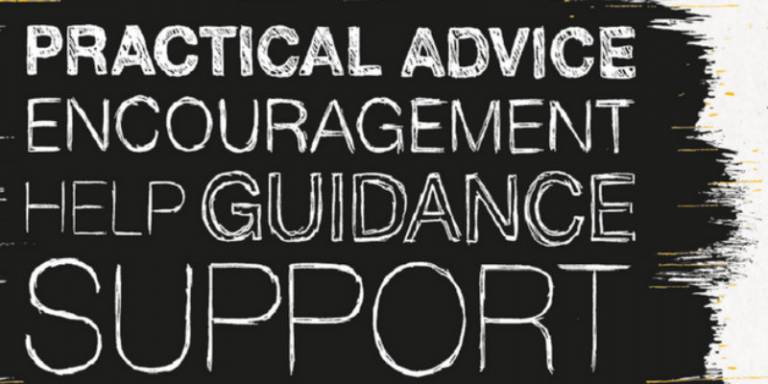What do you need to succeed? Personal tutoring at UCL
3 October 2017
If you're a student on a taught programme, one of your first priorities of the year should be to meet your personal tutor.

Whether you're new to UCL or a returning student, personal tutors are there to help you to get the most out of your studies, as well as providing support and encouragement during your time at university. The Current Students webpages have a section devoted to personal tutoring including a downloadable guide, What do you need to succeed? (also available in print form from your department).
Dr Cloda Jenkins, BSc Programme Director and personal tutor in UCL Economics, says: 'It boils down to being a person who will listen and ask questions. I am here to offer guidance but, most importantly, I think students value having someone who will step back from the detail and listen to them talk about their academic journey.'
- Personal tutoring is organised by your department - and different departments may take slightly different approaches - but you'll receive the same basic support whatever your programme:
- Help with settling into life at UCL - practical guidance and support during those important early days
- Opportunities to discuss your academic progress and develop your confidence with independent learning
- Support if the going gets tough - from advice on keeping up with your studies to directing you to specialist help
- Encouragement and an informed view about ways to enrich your academic studies and build your CV
- A reliable point of contact throughout your studies, so you can make the most of your time at UCL
Unlike a private tutor, personal tutors are not able to work one-to-one with you to prepare specific pieces of academic work. However, they will encourage you to develop an independent style of learning and help you find further specialist support with study skills.
So how does it work?
- Your department will tell you who your personal tutor is and give you their contact details.
- Arrange a time to meet. It's crucial to make this connection quickly so that you begin benefiting immediately
- Set up regular meetings with your personal tutor to discuss your academic progress, share opinions and get encouragement with extra- or co-curricular activities.
- Make sure you know the regular times when your personal tutor is available - if at some point you find yourself struggling with work or personal issues, they can offer advice and put you in touch with specialist support services
- Keep in contact with your personal tutor throughout your time at UCL - they can offer guidance on life after graduation, help build your CV and even write a reference to help with your future career.
Things to talk about
Sometimes it's hard to know how to start conversations about your progress, so UCL has produced a handbook, called Things to talk about, which has suggestions for topics at every stage of your academic adventure at UCL (your personal tutor will have a copy too). Look out for it online and use it to help you prepare for your meetings.
'The one-to-one sessions are invaluable for feedback and improvement and I reached out to my personal tutor several times when I had personal or study-related problems. I received fantastic support throughout and I now feel prepared for postgraduate study.' UCL student, National Student Survey 2017
 Close
Close

